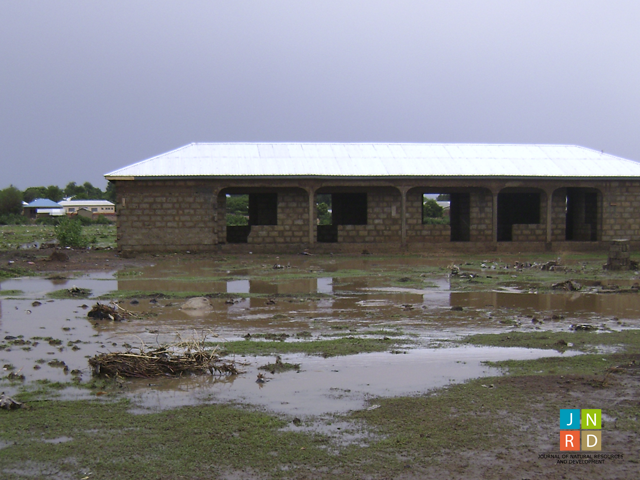Assessment of encroachment of urban streams in Ghana a case study of Wa Municipality
Main Article Content
Abstract
This paper assessed encroachment of streams due to physical development in Wa Urban Area of the Upper West Region of Ghana. The assessment was informed by the recognition that the roles played by streams in flood control are undermined by physical developments. This affects sustainable urban development and renders the urban area vulnerable to floods. The assessment was based on the 300m buffer zone standard set by the Ghana Water Resources Commission as a protective zone for such streams in the country. It is mandatory to offset all physical development from this zone but that is not the situation on the ground. For the purpose of this study each buffer zone was divided into sub-buffer zones of 100m in order to appreciate how far development has moved into the prohibited buffer zone. The streams and physical structures were mapped with a Trimble GPS receiver while land owners and tenants were purposively selected and interviewed. The buffer zone and sub-buffer zones were defined using GIS and overlaid with map of the physical structures. The categories of structures found in the buffer zones were residential (93.4 %), commercial (5.1%), public (1.3%) and agriculture (0.2%). The results of the study indicates that more than 50 % of physical structures mapped are located in the inner buffer and the land acquisition process for development of these structures amongst others in Wa is mostly initiated by developers.
Article Details
Issue
Section

This work is licensed under a Creative Commons Attribution-NonCommercial-NoDerivatives 4.0 International License.

